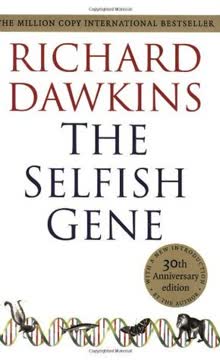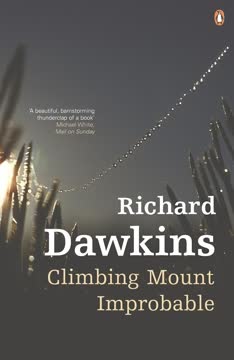Key Takeaways
1. Science values objective truth and honesty above all.
Science is perhaps the most stringently honest of all professions.
Truth is paramount. Science is founded on the belief in objective truth, a reality that exists independently of human belief or culture. This truth is discoverable through rigorous methods designed to minimize personal bias and error. Different scientists, regardless of background, should converge on the same truths.
Honesty is cardinal. Within the scientific community, fiddling data or misrepresenting findings is the ultimate sin, leading to professional ostracism. While fraud exists, the system is built to detect it, and the pursuit of truth provides the primary motivation for the work itself, making dishonesty counterproductive to the core enterprise. This contrasts sharply with professions where rhetoric or advocacy are valued over objective fact.
Evidence over intuition. Scientists are trained to rely on testable evidence, precision, and repeatability, not gut feelings or private revelation. This disciplined approach, while sometimes perceived as cold, is essential for building reliable knowledge about the world, from predicting eclipses to developing life-saving medicines.
2. Evolution by natural selection is the only known explanation for adaptive complexity.
Darwinism...is the only force I know that can, in principle, guide evolution in the direction of adaptive complexity.
Explaining design. The primary task of evolutionary theory is to explain the appearance of complex, functional design in living organisms, like the eye or the bacterial flagellum, without invoking a supernatural designer. Natural selection achieves this by favoring individuals whose random variations enhance survival and reproduction, leading to the gradual accumulation of beneficial traits over vast timescales.
Gradualism is key. Adaptive complexity cannot arise suddenly by chance ("747 saltation"). It requires a process of cumulative selection, building complexity step-by-step over many generations. While evolution can be rapid in geological terms ("rapid gradualism" or "DC-8 saltation"), it is always fundamentally gradual in the sense of accumulating small, advantageous changes.
Universal principle. The principles of Darwinian natural selection – replicating entities with phenotypic effects influencing their replication success – are likely universal to any life found elsewhere in the cosmos. While the details (DNA, proteins, etc.) might differ, the core mechanism of non-random selection of randomly varying replicators is the only known process capable of generating complex adaptation from simplicity.
3. The 'soul' is an emergent property of the brain, not a supernatural entity.
Personal identity is an emergent consequence of material brain activity and it must disintegrate, eventually reverting to its pre-birth nothingness, when the brain decays.
Brain-based identity. The sense of a subjective, personal identity – the 'self' or 'soul' in a non-supernatural sense – is a complex construction of the brain. It develops gradually in childhood and is an emergent property of material processes, not an immaterial substance. This 'soul' (Soul-2) is the seat of intellect, emotion, and sensibility.
No survival after death. This scientific understanding of the 'soul' (Soul-2) is fundamentally incompatible with the religious concept of a supernatural 'soul' (Soul-1) that is detachable from the body and survives after death. Science finds no evidence for such a disembodied spirit.
Science enhances Soul-2. Far from diminishing the human spirit, science enhances Soul-2 by revealing the astonishing complexity and beauty of reality. The awe and wonder inspired by scientific discovery, from the vastness of the cosmos to the intricacies of life, are profound expressions of this brain-based 'soulfulness'.
4. Religion is belief without evidence, often harmful, and fundamentally different from science.
Faith, being belief that isn’t based on evidence, is the principal vice of any religion.
Faith vs. evidence. Religion relies on faith, which is belief held without or even against evidence. This is the opposite of science, which demands verifiable evidence and logical reasoning. This fundamental difference makes science and religion incompatible ways of knowing about the world.
Harmful consequences. Religious faith, particularly when combined with certainty about an afterlife, can have dangerous real-world consequences, as seen in:
- Suicide attacks motivated by promises of paradise.
- Devaluing human life by teaching that death is not final.
- Misdirecting resources (money, time, emotion) towards prayer instead of practical solutions (e.g., tsunami warning systems).
- Justifying cruelty or intolerance based on ancient texts.
Bad science. Religions often attempt to provide explanations for the universe and life, but these explanations (cosmologies, biologies) are based on myth and tradition, not evidence. They are, in essence, bad science, and should not be granted equal status with evidence-based scientific theories.
5. The 'discontinuous mind' creates artificial categories that distort reality.
Essentialism bedevils moral controversies such as those over abortion and euthanasia.
Plato's legacy. The human tendency towards "essentialism" or the "tyranny of the discontinuous mind" leads us to impose sharp, artificial boundaries on continuous realities. This stems from the ancient philosophical idea that things belong to distinct, ideal categories.
Distorting continua. This mindset struggles with gradual change and continua, forcing things into discrete boxes (e.g., rich/poor, adult/child, black/white, safe/unsafe). Examples include:
- Defining a "poverty line" or exam "classifications" that discard nuanced information.
- Insisting on a single moment when an embryo becomes a "person."
- Classifying individuals into rigid racial categories despite mixed ancestry.
- Demanding absolute "yes/no" answers about risk or safety.
Blind to intermediates. The discontinuous mind is blind to the gradual transitions inherent in evolution, leading creationists to falsely claim "gaps" in the fossil record as evidence against the theory. In reality, evolution is a continuous process where species gradually diverge, and intermediates exist (or existed before extinction).
6. Applying scientific reason is crucial for understanding the world and solving problems.
Let’s get up off our knees, stop cringing before bogeymen and virtual fathers, face reality, and help science to do something constructive about human suffering.
Reason's power. Reason, based on evidence and logic, is the most effective tool humanity has for understanding the real world and addressing its challenges. Science, as the grand enterprise of reason, has yielded profound knowledge and technological advancements that have improved human lives and liberated us from ancient fears.
Facing reality. Unlike religious faith, which offers illusory comforts or misdirects effort, science encourages facing reality directly. This allows for practical, evidence-based solutions to problems like disease, natural disasters (e.g., early warning systems), and environmental threats.
Beyond the lab. Scientific thinking extends beyond the laboratory; its principles of critical inquiry, evidence evaluation, and logical deduction are vital for navigating complex issues in ethics, law, politics, and social life. A society that embraces reason is better equipped to make informed decisions and build a better future.
7. Evolutionary thinking can explain human behavior, including altruism and irrationality.
Natural selection of selfish genes gave us big brains which were originally useful for survival in a purely utilitarian sense.
Evolved psychology. Evolutionary psychology suggests that human behaviors and psychological tendencies, including those seemingly irrational or altruistic, have roots in our evolutionary past. Our brains, shaped by natural selection in ancestral environments, contain specialized "modules" for tasks like kinship analysis, social exchange, and language learning.
Beyond selfish genes. While genes are fundamentally "selfish" in their drive to replicate, this can lead to complex social behaviors in individuals, such as:
- Kin altruism: Favoring relatives who share genes.
- Reciprocal altruism: Cooperating with others with the expectation of future return.
- Suspicious trust: A balance of cooperation and vigilance against cheating.
Misfiring adaptations. Some modern human behaviors, including religious gullibility or excessive altruism ("superniceness"), may be "misfirings" of adaptations that were beneficial in ancestral environments but are maladaptive or exploited in the modern world. For example, a child's evolved tendency to believe elders makes them vulnerable to adopting irrational beliefs.
8. The universe revealed by science offers profound awe and wonder.
The world is a thing of utter inordinate complexity and richness and strangeness that is absolutely awesome.
Cosmic perspective. Science reveals a universe of staggering scale and complexity, from the vastness of space and deep time to the intricate workings of atoms and cells. This perspective, far from being bleak, offers a profound sense of awe and wonder that surpasses the limited cosmologies of traditional religions.
Beauty in truth. The aesthetic beauty found in scientific understanding, such as the elegant laws of physics or the intricate patterns of biological evolution, resonates deeply with the human spirit. Scientists often describe a sense of "shuddering before the beautiful" when encountering fundamental truths about nature.
Beyond magic. While scientific discoveries can seem like magic to those unfamiliar with the underlying principles, science replaces supernatural mystery with explicable wonders. The universe is lawful and understandable, and the privilege of uncovering its secrets is a source of immense intellectual and emotional uplift.
9. Humor and satire are powerful tools for defending reason.
There is probably no page in this book that doesn’t set me laughing out loud whenever I reread it...
Weaponizing wit. Humor, satire, and parody are effective tools for exposing the absurdity and irrationality of pseudoscientific claims and religious dogma. By mimicking the language and logic of opponents, one can highlight their flaws more effectively than through dry argumentation alone.
Exposing illogic. Parodies of creationist arguments, theological reasoning (e.g., the Atonement), or bureaucratic rule-following can reveal the underlying illogic and lack of evidence in a memorable and engaging way. This approach disarms opponents and entertains the audience simultaneously.
Beyond solemnity. Defending reason doesn't require constant solemnity. A playful or witty approach can make complex ideas accessible and demonstrate that skepticism and intellectual rigor are compatible with joy and amusement, even when addressing serious topics.
10. The future holds both scientific promise and challenges from irrationality.
Fifty years on, science will have killed the soul.
Scientific progress continues. The future promises continued scientific breakthroughs, from understanding consciousness and the human brain to potentially detecting extraterrestrial intelligence (SETI) or developing advanced technologies. These advancements will further deepen our understanding of reality and offer new possibilities for humanity.
Persistent irrationality. Despite the power of science, irrationality and faith-based beliefs remain significant forces in the world, posing challenges to reason and progress. Phenomena like the spread of misinformation online or the political influence of anti-science movements highlight the ongoing need to advocate for evidence and critical thinking.
Hope for reason. While the struggle between reason and irrationality persists, the increasing interconnectedness facilitated by technology like the internet offers potential for spreading knowledge and fostering critical thinking globally. Ultimately, the hope lies in humanity's capacity to embrace reason and apply it to build a more informed, compassionate, and sustainable future.
Last updated:
Review Summary
Science in the Soul is a collection of essays by Richard Dawkins covering topics like evolutionary biology, atheism, and science promotion. Many readers praise Dawkins' eloquence, passion for science, and critiques of religion. The book offers insights into Darwinism, ethics, and rationality. Some found it repetitive or overly critical of religion, while others appreciated the humor and tributes to influential figures. The diverse essays appeal differently to readers, with some preferring Dawkins' purely scientific writing over his atheist arguments. Overall, most reviewers recommend it for those interested in science and critical thinking.
Similar Books





Download PDF
Download EPUB
.epub digital book format is ideal for reading ebooks on phones, tablets, and e-readers.













